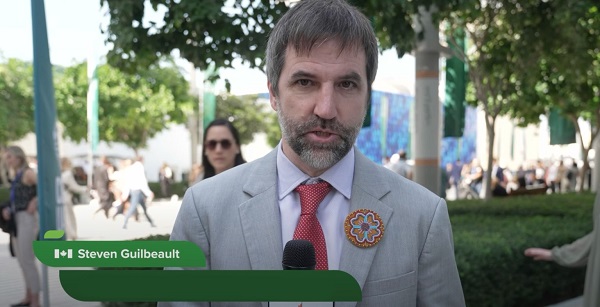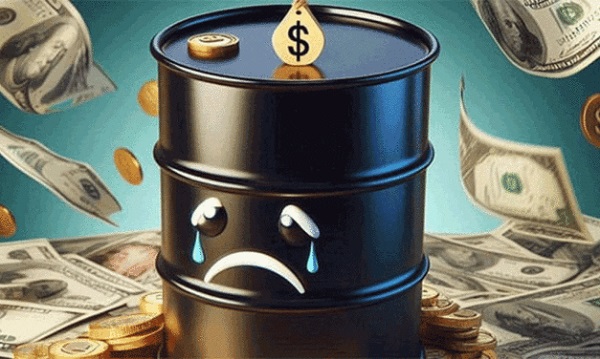Energy
Most Canadians support Saskatchewan’s refusal to collect Trudeau’s carbon tax: poll
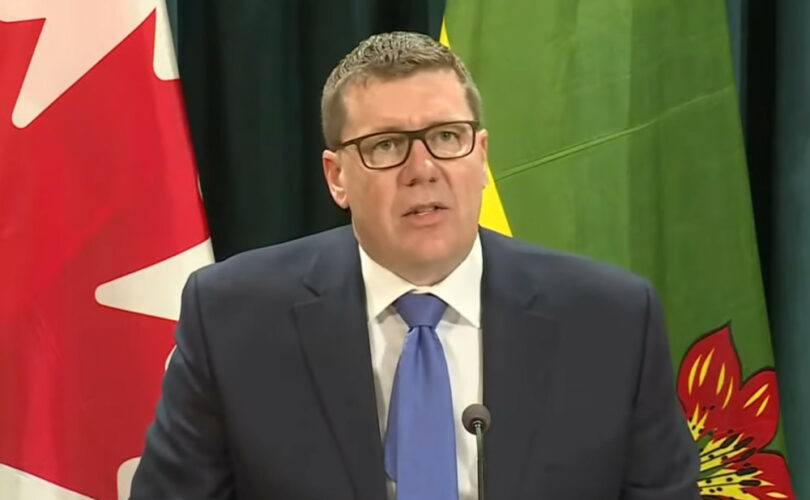
From LifeSiteNews
Since January 1, the Canadian province has not been collecting the carbon tax on home heating despite threats from the Trudeau government.
A majority of Canadian believe that Saskatchewan is correct in not collecting Prime Minister Justin Trudeau’s carbon tax on home heating.
According to a March 25 poll by Angus Reid, most Canadians support Saskatchewan’s refusal to collect the carbon tax on home heating, ranging from 41% supporting the move in Quebec to 71% in Alberta.
“A majority of Canadians (not just SK residents) say our government is doing the right thing by not collecting and remitting the Trudeau-NDP carbon tax on home heating,” Saskatchewan Premier Scott Moe celebrated on X, formerly known as Twitter.
A majority of Canadians (not just SK residents) say our government is doing the right thing by not collecting and remitting the Trudeau-NDP carbon tax on home heating. pic.twitter.com/2CdLWRxmmP
— Scott Moe (@PremierScottMoe) March 25, 2024
Saskatchewan stopped collecting the carbon tax on home heating in January after the Trudeau government gave a carbon tax exemption on home heating oil, a break that almost exclusively benefits the Liberal voting Atlantic provinces.
According to the poll, 56% of Canadians held that cost of living concerns should trump “climate change” concerns when making economic policies. Sixty-eight percent also believe that the tax is ineffective at reducing Canada’s greenhouse gas emissions.
Forty percent of Canadians revealed that the carbon tax has made their life “a lot” more expensive, and 26% said it has only increased their cost of living by “a little.”
While Canadians revealed that they had received carbon tax rebates, 45% declared that they believe they pay more in taxes than receive in rebates.
Indeed, for most Canadians, this is true, as the Parliamentary Budget Officer revealed that the government rebates are insufficient to cover the rising costs of fuel under Trudeau’s carbon tax, leaving Canadians to pay the balance.
While Moe has received threats from the Liberal government for his refusal to collect the tax, the move has already been shown to have lowered the province’s inflation rate.
Despite the popularity and seeming fairness of Moe’s decision, Trudeau’s Liberal government has refused to rule out jail time for Moe if he refuses to collect the carbon tax on home heating.
Meanwhile, Trudeau has refused to pause the carbon tax hike scheduled for April 1, despite seven out of 10 provincial premiers and 70% of Canadians pleading with him to halt his plan.
Trudeau’s carbon tax, framed as a way to reduce carbon emissions, has cost Canadian households hundreds of dollars annually despite rebates.
The increased costs are only expected to rise, as a recent report revealed that a carbon tax of more than $350 per tonne is needed to reach Trudeau’s net-zero goals by 2050.
Currently, Canadians living in provinces under the federal carbon pricing scheme pay $65 per tonne, but the Trudeau government has a goal of $170 per tonne by 2030.
However, despite appeals from politicians and Canadians alike, Trudeau remains determined to increase the carbon tax regardless of its effects on Canadians’ lives.
The Trudeau government’s current environmental goals – which are in lockstep with the United Nations’ 2030 Agenda for Sustainable Development – include phasing out coal-fired power plants, reducing fertilizer usage, and curbing natural gas use over the coming decades.
The reduction and eventual elimination of so-called “fossil fuels” and a transition to unreliable “green” energy has also been pushed by the World Economic Forum, the globalist group behind the socialist “Great Reset” agenda in which Trudeau and some of his cabinet are involved.
Alberta
Alberta’s E3 Lithium delivers first battery-grade lithium carbonate
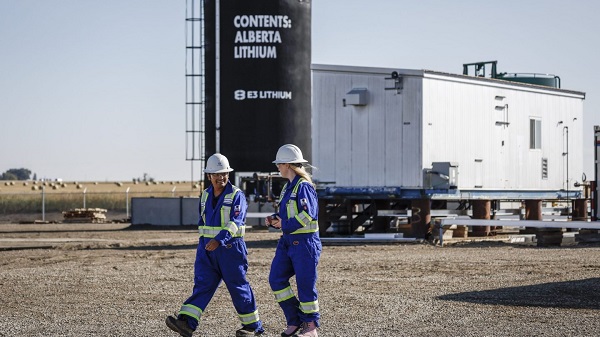
E3 Lithium employees walk through the company’s lithium pilot plant near Olds
From the Canadian Energy Centre
E3 Lithium milestone advances critical mineral for batteries and electrification
A new Alberta facility has produced its first battery-grade lithium carbonate, showcasing a technology that could unlock Canada’s largest resources of a critical mineral powering the evolving energy landscape.
In an unassuming quonset hut in a field near Olds, Calgary-based E3 Lithium’s demonstration plant uses technology to extract lithium from an ocean of “brine water” that has sat under Alberta’s landscape along with oil and gas for millions of years.
Lithium is one of six critical minerals the Government of Canada has prioritized for their potential to spur economic growth and their necessity as inputs for important products.
“The use for lithium is now mainly in batteries,” said E3 Lithium CEO Chris Doornbos.
“Everything we use in our daily lives that has a battery is now lithium ion: computers, phones, scooters, cars, battery storage, power walls in your house.”
Doornbos sees E3 as a new frontier in energy and mineral exploration in Alberta, using a resource that has long been there, sharing the geologic space with oil and gas.
“[Historically], oil and water came out together, and they separated the oil from the water,” he said.
“We don’t have oil. We take the lithium out of the water and put the water back.”
Lithium adds to Canada’s natural resource strength — the country’s reserves rank sixth in the world, according to Natural Resources Canada.
About 40 per cent of these reserves are in Alberta’s Bashaw District, home to the historic Leduc oilfield, where E3 built its new demonstration facility.
“It’s all in our Devonian rocks,” Doonbos said. “The Devonian Stack is a carbonate reef complex that would have looked like the Great Barrier Reef 400 million years ago. That’s where the lithium is.”
Funded in part by the Government of Canada and the Government of Alberta via Alberta Innovates and Emissions Reduction Alberta (ERA), the project aims to demonstrate that the Alberta reserve of lithium can be extracted and commercialized for battery production around the world.
E3 announced it had produced battery-grade lithium carbonate just over two weeks after commissioning began in early September.
In a statement, ERA celebrated the milestone of the opening of the facility as Alberta and Canada seek to find their place in the global race for more lithium as demand for the mineral increases.
“By supporting the first extraction facility in Olds, we’re helping reduce innovation risk, generate critical data, and pave the way for a commercial-scale lithium production right here in Alberta,” ERA said.
“The success from this significant project helps position Alberta as a global player in the critical minerals supply chain, driving the global electrification revolution with locally sourced lithium.”
With the first phase of the demonstration facility up and running, E3 has received regulatory permits to proceed with a second phase that involves drilling a production and injection well to confirm brine flow rates and reservoir characteristics. This will support designs for a full-scale commercial facility.
Lithium has been highlighted by the Alberta Energy Regulator (AER) as an emerging resource in the province.
The AER projects Alberta’s lithium output will grow from zero in 2024 to 12,300 tonnes by 2030 and nearly 15,000 tonnes by 2034. E3 believes it will beat these timeframes with the right access to project financing.
E3 has been able to leverage Alberta’s regulatory framework around the drilling of wells to expand into extraction of lithium brine.
“The regulator understands intimately what we are doing,” Doornbos said.
“They permit these types of wells and this type of operation every day. That’s a huge advantage to Alberta.”
Energy
Nuclear power outperforms renewables every time
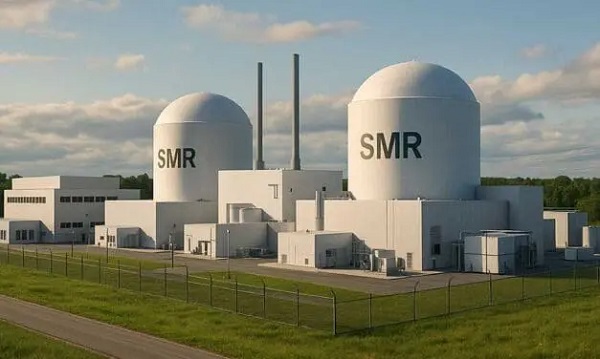
This article supplied by Troy Media.
Wind and solar work in small niches, but nuclear remains the only reliable, cost-effective choice for large-scale electricity
Last month, Prime Minister Mark Carney unveiled a shortlist of major Canadian infrastructure projects. At the top: a small modular reactor (SMR) at Ontario’s Darlington nuclear site. Designed to power 300,000 homes, the project may make Canada the first G7 nation with operational SMRs —and it marks a quiet turning point in the clean energy debate.
It’s a timely reminder that while wind and solar dominate headlines, nuclear remains the only scalable low-emissions solution ready to anchor the grid.
As someone who spent decades working on 13 nuclear reactor projects across Canada and abroad—and 40 years living off-grid on a sailboat powered by solar panels and microturbines—I support renewables for small-scale use. But based on professional and personal experience, I can say confidently that nuclear is the better fit for our large-scale energy needs.
Many renewable advocates compare technologies using nameplate capacity—maximum output under ideal conditions. But what matters is how much electricity each generator actually delivers under real-world conditions, especially in places like Alberta.
A typical Canadian home consumes about 35 kilowatt hours of electricity annually. A 100- megawatt nuclear plant operating year-round produces 876 million kWh per year. In comparison, wind farms in Alberta operate at about 32 per cent efficiency, delivering only 280 million kWh per year. Solar farms fare worse, averaging just 17 per cent efficiency annually, with output dropping close to zero in the winter. A 100 MW solar farm produces around 149 million kWh per year. While performance
may vary in other regions, the broader issues—intermittency and short lifespans—remain consistent.
Lifespan is a critical factor. A nuclear plant, with refurbishment, can last around 60 years. Wind turbines and solar panels typically last about 20 years and degrade by two to three per cent each year. Unlike nuclear, they can’t be economically refurbished. That means triple the renewable infrastructure is required over time to deliver the same output.
Measured over their full lifecycle, nuclear plants produce electricity more cost-effectively than many assume. High up-front costs and long construction periods can inflate financing charges, but modular construction of SMRs—factory-built in sections and assembled on site—will cut those interest costs significantly. Ontario’s older CANDU reactors already deliver electricity at 10.1 cents per kilowatt hour—less than natural gas (11.3), wind (15.4), or solar (50.2), and only slightly higher than hydro (6.1). These figures exclude subsidies.
Modern SMRs also address concerns around radioactive waste. Some designs use thorium, a safer alternative to uranium that doesn’t produce long-lived waste. Others recycle spent uranium fuel repeatedly until it’s depleted. Moltex Energy, based in New Brunswick, is developing technology to recycle spent CANDU fuel until it is fully depleted. In time, we may no longer need to store used fuel at all.
SMRs also offer safety and deployment advantages. Many rely on passive controls and require no on-site operators. They’re compact enough to be delivered by truck, avoiding years-long construction delays and enabling faster integration into the grid.
Wind and solar remain fundamentally intermittent. That’s because electricity grids require a constant, stable supply. If the wind dies down or clouds roll in, another source must take over immediately to prevent blackouts. This need for backup—usually with natural gas turbines—means double the infrastructure and double the cost.
The market is responding to the failure of renewables to deliver reliable power. Countries investing in nuclear are thriving. Others—like Germany—face deindustrialization, with energy prices up to four times higher than before. According to online news outlet Brussels Morning, more than 1,100 renewable projects have been rejected in Europe. Investor confidence in renewables is slipping.
All of this points to a simple truth.
Renewables have their place—but not as the backbone of our electricity grid. For reliable, industrial-scale power that keeps homes, hospitals and industries running, only nuclear can deliver.
Cosmos Voutsinos is a retired engineer who has published multiple scientific papers that have garnered a total of 96 citations. He earned his Bachelor of Applied Science (BASc) at the University of Waterloo and his Master of Engineering (M.Eng) degree from McMaster University.
Troy Media empowers Canadian community news outlets by providing independent, insightful analysis and commentary. Our mission is to support local media in helping Canadians stay informed and engaged by delivering reliable content that strengthens community connections and deepens understanding across the country.
-
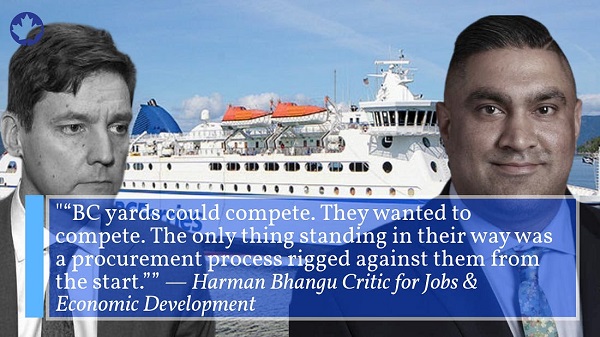
 Business1 day ago
Business1 day agoJobs Critic says NDP government lied to British Columbians and sold out Canadian workers in billion dollar Chinese ferries purchase
-

 Indigenous2 days ago
Indigenous2 days agoBloodvein First Nation blockade puts public land rights at risk
-
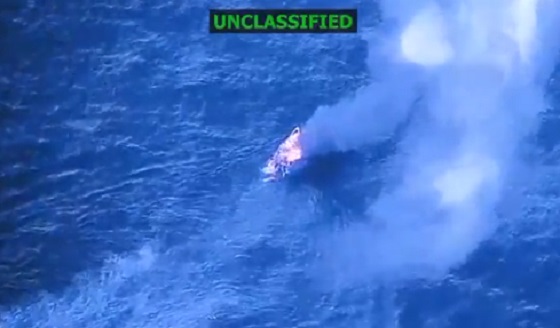
 International2 days ago
International2 days agoTrump says U.S. in ‘armed conflict’ with drug cartels in Caribbean
-

 Automotive15 hours ago
Automotive15 hours agoBig Auto Wants Your Data. Trump and Congress Aren’t Having It.
-
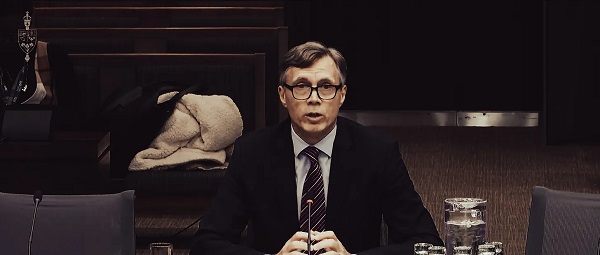
 Business1 day ago
Business1 day agoDemocracy Watch Drops a Bomb on Parliament Hill
-

 Alberta18 hours ago
Alberta18 hours agoJason Kenney’s Separatist Panic Misses the Point
-
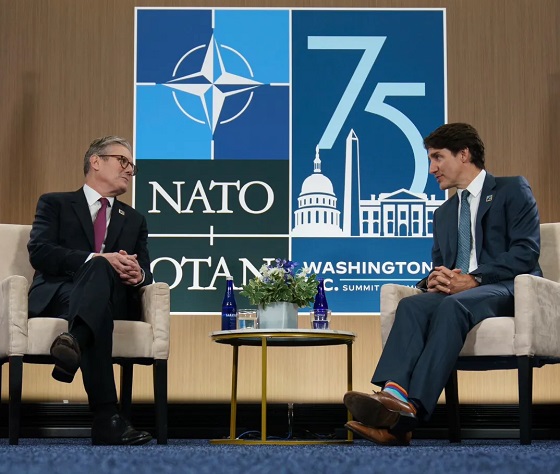
 espionage4 hours ago
espionage4 hours agoStarmer Faces Questions Over Suppressed China Spy Case, Echoing Trudeau’s Beijing Scandals



